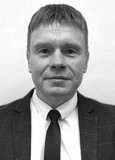FORECASTING THE COMPETITIVE PERFORMANCE OF YOUNG ATHLETES BASED ON ARTIFICIAL INTELLIGENCE TECHNOLOGY
Keywords:
young athletes, competitive performance, artificial intelligence, forecasting, intellectual program.Abstract
Objective of the study was to develop a program for predicting the competitive performance of young athletes based on artificial intelligence technology.
Methods and structure of the study. As part of the scientific work, the collection and processing of individual data of athletes (n=56) was carried out according to 38 characteristics, ranked into 2-4 categories in three key areas: heredity, environment and individual.
Results and conclusions. As a result of data processing using deep neural networks and machine learning algorithms, two categories of prediction were identified: athletes who achieved a sports title or the highest category, and athletes who did not reach this level. The control testing of the created program showed only 11% of the error probability in predicting the competitive performance of young athletes. The author's program made it possible to identify reliable patterns: if a young athlete's mother has a sports title, then with 79% probability he will be effective in future competitive activities, and if he is still trained by a mentor with experience from 16 to 30 years, then the probability of reaching the highest level or sports title rises to 86%.
References
Morhat P.M. Iskusstvennyy intellekt v sfere sporta: vozmozhnosti, napravleniya i sposoby zadeystvovaniya [Artificial intelligence in the field of sports: opportunities, directions and methods of involvement]. Teoriya i praktika fizicheskoy kultury. 2018. No. 10. pp. 95-97.
Nagovitsyn R.S., Vladykina I.V., Senator S.Yu. Programma podgotovki k sdache norm vserossiyskogo kompleksa «GTO» na osnove mobilnogo obucheniya [The program of preparation for passing the norms of the All-Russian complex "GTO" based on mobile learning]. Teoriya i praktika fizicheskoy kultury. 2015. No. 1. pp. 46-48.
Nagovitsyn R.S., Rassolova E.A., Senator S.Yu., Torbina I.I. Razrabotka veb-portala dlya podgotovki studentov k testirovaniyu po normam GTO [Development of a web portal for preparing students for testing according to the GTO norms]. Teoriya i praktika fizicheskoy kultury. 2016. No. 1. pp. 39-42.
Yue Q. Dynamic database design of sports quality based on genetic data algorithm and artificial intelligence. Comput Intell Neurosci. 2022. No. 16. 7473109.
Wang T., Park J. Design and implementation of intelligent sports training system for college students' mental health education. Front Psychol. 2021. No. 12. 634978.
Zhang B., Jin H., Duan X. Physical education movement and comprehensive health quality intervention under the background of artificial intelligence. Front Public Health. 2022. No. 10. 947731.

Downloads
Published
Versions
- 28-04-2023 (3)
- 19-04-2023 (2)
- 18-04-2023 (1)

